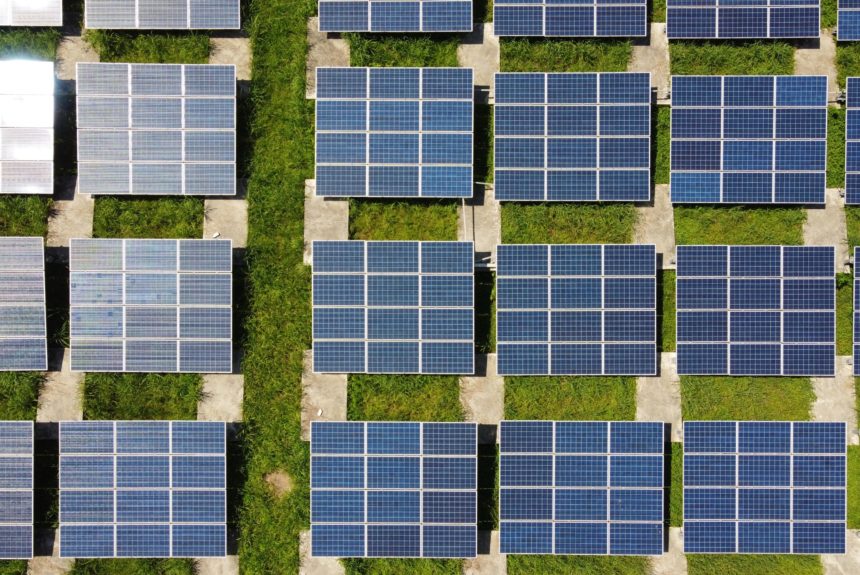This article originally appeared in RealClearEnergy
Last week, COP28 closed with an agreement to transition away from fossil fuels and triple global renewable energy and nuclear power production by 2050. While COP agreements notoriously overpromise and underdeliver, the global support to increase low-carbon energy generation makes one thing abundantly clear: the world is going to need more innovation. Meeting energy demands and emissions goals will best be met by doubling down on and expanding economic freedom globally.
>>>READ: Free Markets Can Drive Prosperity Up, Emissions Down
The task of moving away from fossil fuels quickly or suddenly is wildly unrealistic as they supply 80% of the world’s energy needs. Global energy demand is expected to increase 50% by 2050, with a majority of that growth coming in the developing world. Fossil fuels are also responsible for many of the goods that have advanced human prosperity including fertilizers, cell phones, cookstoves, clothing, and more.
While a mandated, full transition away from fossil fuels is neither well-advised or likely, scaling down and meeting consumers’ needs will require innovative breakthroughs to a scale and pace that has not historically been seen. To accomplish those objectives, policymakers should unleash the power and ingenuity of people and markets.
There is a strong, positive relationship between a country’s economic freedom score, as measured by The Heritage Foundation’s Index of Economic Freedom, and its ability to innovate; meaning that as a country becomes more economically free, it becomes more innovative. The policies that make a country economically free are the same ones that encourage entrepreneurial activity.
One reason for this is that economically free countries tend to be wealthier. When countries are freer and wealthier, businesses have more resources to fund new technologies, cutting edge research, and to invest more in people through education and scientific institutions. Importantly, these investments not only produce innovative breakthroughs, but also create a positive feedback loop for a nation’s economy. For instance, one study from Georgia Tech estimates that a “one percent change in research and development expenditure will increase GDP per capita by 5 percent.”
Economically free countries also have stronger intellectual property rights protections which affords opportunities for developers to protect their investment in emerging technologies, create a competitive advantage, and generate revenue from charging for their use of intellectual property. Conversely, weak property rights protections discourage innovation and cause underinvestment in research and development activities.
Business freedom is yet another important component of economic freedom that drives innovation. Competitive markets allow companies to invest in next generation technologies, attract talent, and expand their customer base. Open markets and free trade empower firms to ship their products to the rest of the world. Expanding customer bases drives up innovation and lowers costs, which allows the developing world to leapfrog the use of emissions-intensive technologies in favor of cost-competitive cleaner ones.
Despite the positive relationship between economic freedom and innovation, policymakers are increasingly turning to China’s centralized planning model to attempt to stimulate innovation. As a result, governments have implemented subsidies for mature energy sources and green protectionism to reshore domestic production of clean technologies.
>>>READ: Breathe Easy: Economic Freedom Freedom Provides a Breath of Fresh Air to the World
Seemingly well-intentioned, these policies can slow down global energy innovation by shifting customer bases from emerging economies to the developed ones that offer lucrative incentives. The compliance and regulatory requirements of these laws also add undue barriers to foreign businesses looking to tap into industrialized markets. Taken together, these policies have the unintended consequence of slowing down development in emerging economies which hinders climate progress by hamstringing their ability to adapt to extreme weather, invest in infrastructure, and expand reliable energy access.
And while China, which earns the categorization of “Repressed” in Heritage’s Index of Economic Freedom, has undoubtedly had successes in creating cutting-edge technologies, its progress is an outlier versus other Repressed nations such as Haiti, Egypt, and Iran. Furthermore, the government-centric industrial policy that China has pursued has led to malinvestments in infrastructure and public transportation which have had crippling effects across the economy—public debt has ballooned, exports have declined, and youth unemployment is so high that the government has stopped keeping track. And those who point to China as a model also gloss over its human rights abuses.
Rectifying these failures will pull capital away from investments in innovation and should provide a stark warning to western nations that are following China’s footsteps: centralized planning and protectionism hurt the planet and its people. Free economies create clean economies.
While the world will likely never fully transition away from fossil fuels, expanding the share of low-carbon energy generation in a cost-effective way will require innovation at a scale that has not been seen. Accelerating and streamlining innovation globally will be best accomplished by turning away from protectionism and unleashing policies rooted in economic freedom.
The views and opinions expressed are those of the author’s and do not necessarily reflect the official policy or position of C3.
